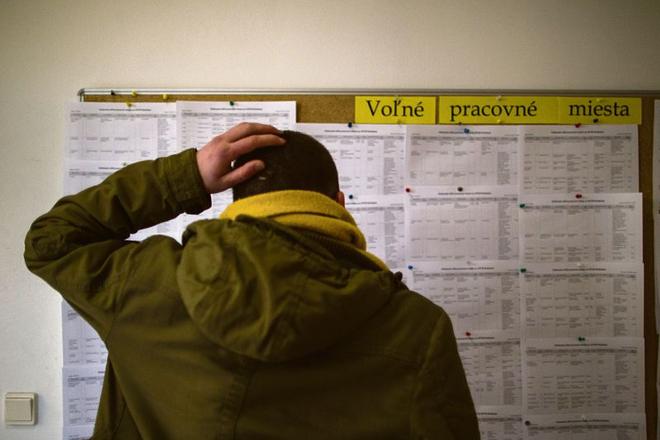AFTER a marathon 13-hour parliamentary debate over unemployment in Slovakia, which earlier this year hit a nine-year high of just under 15 percent, opposition parties on April 16 failed to pass a joint declaration expressing concern over the number of jobless and what it called the feeble conditions for the creation of new jobs in Slovakia. While the opposition parties blame the policies of the government of Robert Fico for the growing unemployment numbers, government officials have repeated their mantra that it is the global crisis and not their own revisions to the Labour Code or changes to the tax legislation that lies behind the growth in joblessness.
The special parliamentary session, initiated by 31 opposition lawmakers, was wrapped up without any resolution obliging the government to submit a report on measures to boost job creation or improve the business environment, as had been requested by the opposition. Some lawmakers had also wanted parliament to call on the government to block all further bills that might increase the financial and non-financial burden on employers and businesses, the TASR newswire reported. Instead, the cabinet went so far as to denounce the opposition for even initiating a special debate on unemployment.
Labour Minister Ján Richter said that the government would shortly pass a set of pro-growth measures which would bring tens of thousands of new jobs to Slovakia.
“This is our response to the unemployment,” Richter told MPs, adding that the measures would include public investments in several areas and investment stimuli, the SITA newswire reported.
Representatives of the opposition listed the cancellation of the flat tax, the hiking of taxes and payroll taxes, and what they called reduced flexibility in the recently revised Labour Code as the cause of the high jobless numbers.
The opposition’s view
Pavol Frešo, chairman of the opposition Slovak Democratic and Christian Union (SDKÚ), argued that Slovakia should not have the highest corporate tax among all post-communist countries and that this should be cut, adding “it was unreasonable to kill the flat tax” in Slovakia.
Frešo suggested that if cutting the corporate tax back from 23 percent to 19 percent “is a risk, then let’s set it at 20 percent”, the Sme daily reported on April 17.
The SDKÚ also proposed reducing payroll taxes for low-income groups, changing the state’s regulatory policies and lowering electricity prices paid by companies.
The party also envisions changes to the social system to make it more beneficial to work than to live on social welfare, SITA reported.
Rejecting claims that the government’s legislative activities are behind the growing unemployment rate, Richter said that unemployment in Slovakia has always reflected the rate of economic growth, adding that no miracles should be expected this year.
“It is impossible to significantly change unemployment,” he said, as quoted by SITA.
Dušan Muňko, an MP for the governing Smer party who is also chief executive of the state-run social insurer Sociálna Poisťovňa, said that his party stood behind its earlier promise: if the revised Labour Code causes real problems for firms, its wording will be changed.
“But those must be clear facts, not assumptions,” Muňko said, as quoted by TASR.
In Slovakia only about 9,000 to 11,000 people lost their jobs as a result of the crisis, Muňko claimed, adding that everyone else who joined the unemployment registers had returned from abroad, SITA wrote.



 MPs discussedhowto tackle unemployment. (source: SME)
MPs discussedhowto tackle unemployment. (source: SME)